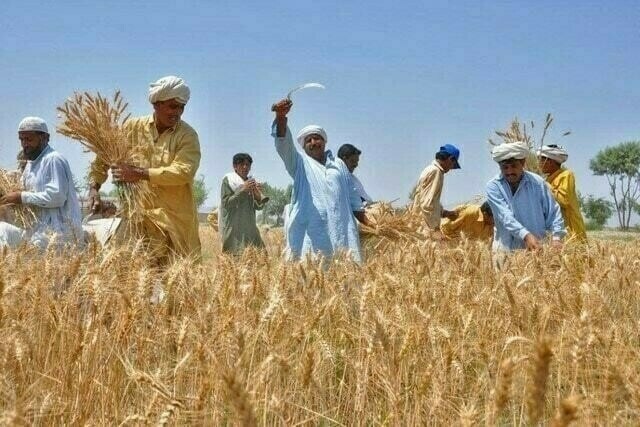Gen Asim’s 6-canal project is paused, for now. First the Sindhis stood against it and now India has added insult to injury after announcing the suspension of the Indus Water Treaty signed by Gen Ayub and Nehru in 1960. On the other hand, the golden crop harvest in Punjab is on the cards, but still there is no government-fixed Minimum Support Price (MSP) for wheat. The ‘wounds’ the wheat famers received last year because of the absence of MSP are still fresh and another crop is again ready to perplex them.
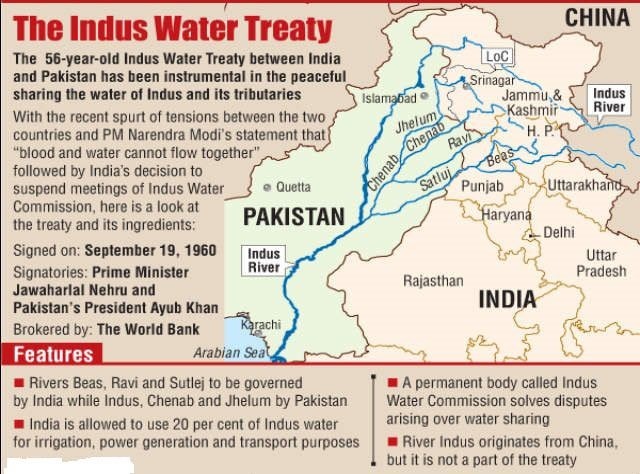
Sindh is simmering with resentment over the 6-canal issue, and it can boil over anytime if the federal government takes any further step to materialize the Establishment’s plan to drain the Indus River water into Cholistan for the cause of corporate farming over 17 million acres. The Pakistani media is not reporting the severest tension prevailing in the Sindh province which has been blocked by Sindhi people. All the main roads and highways connecting the major cities and towns in Sindh are seeing demonstrations and sit-ins by thousands of farmers and general public who say they will go to the last extent to stop anyone from stealing Sindh’s water.
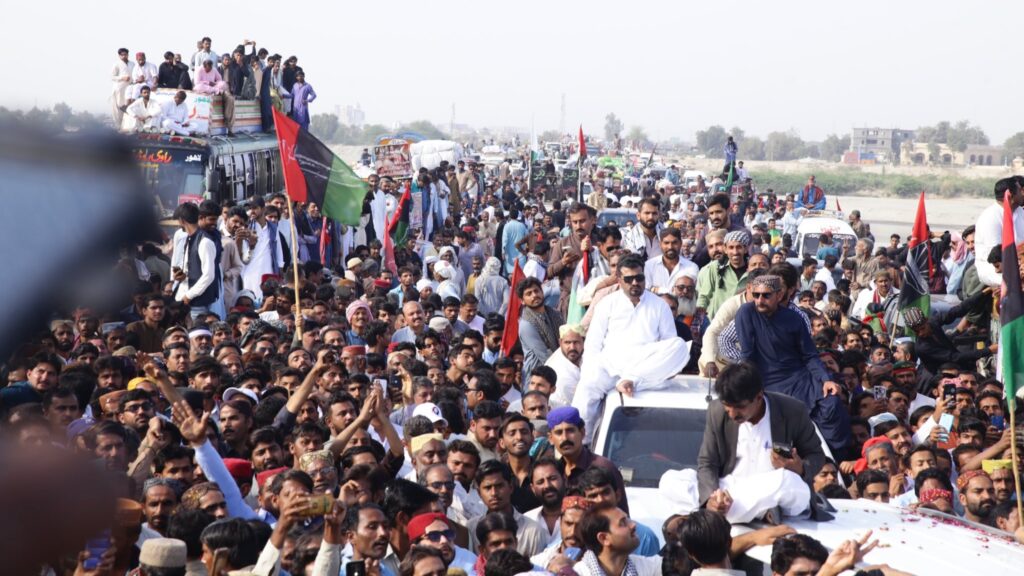
The water issue in Pakistan is not new. It has been persisting since the signing of the World Bank-brokered Indus Water Treaty in 1960. Records are witness that the farmers of Sindh have always been voicing concerns over getting less water than sanctioned by the Indus River System Authority. They over decades complained of receiving less water than required to water their lands because of being on the tail end. Not to speak of less water even the prevailing situation is forcing the Sindhis to perceive their lands even without water if the Cholistan canals are constructed. At the same time, the ground reality can be gauged from the talk of a Punjab Irrigation Department official who, on the condition of anonymity, told this scribe that “we have been directed to utilize maximum IRSA water in Punjab and release only the surplus for any other province”.
“The Indus River is the lifeline of the Sindhis. They are ready to pay any ‘cost’ to save their lifeline. They are taking direct action now. They are out and won’t go back without securing the government commitment that their lifeline will remain intact. Meanwhile, the farmers in Punjab are also on the roads in search of the government-fixed wheat support price. Last week, there were farmers’ demonstrations not only in Punjab but also in Khyber Pakhtunkwa’s cities like Mardan, Malakand, Bajaur, etc. All are disturbed, but the government is giving a deaf ear to all lawful demands,” said Farooq Tariq, secretary general of the Pakistan Kissan Rabta Committee (PKRC), while talking to this scribe on April 23.
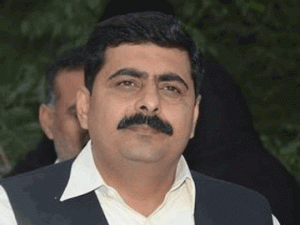
(The PKRC is a member of almost 30 national and international agricultural organizations including La Via Campesina. It has been focusing on multiple issues including welfare of farmers, climate change, farming loans, land reforms, MSP and women rights)
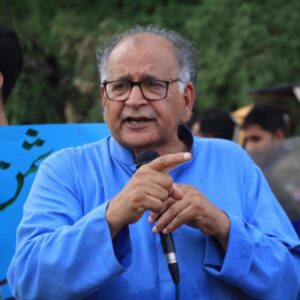
To a question, Farooq said the government wants to deregulate wheat prices on the dictation of the IMF which is always out to save the interests of ruthless capitalists and crush the shackled labour class. In this scenario, hoarders and big landlords secure maximum benefits as poor farmers do not have means to store their produce. Here he pointed to President Asif Ali Zardari, saying that he owns the majority of wheat storages in Pakistan.
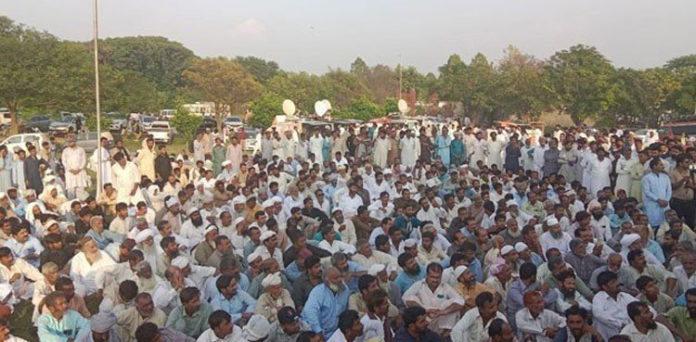
“What the government can do if people stand defiant and block its way. Remember the episode of the Okara Military Farms (OMF) in which tenants went to the extent of sacrificing their lives. This issue surfaced in 2000 – the Musharraf era – and 13 people had been martyred till 2003. Anjuman-e-Mazareen Punjab Chief Mehr Abdul Sattar and his several aides had to face jail in fabricated terrorism, mutiny and theft cases. When cops were beaten by local women at Okara’s Chak 10 in 2003, the OMF personnel went to the extent of forcing men to divorce their wives for standing against the tyranny. Even military tanks were deployed in Okara on April 16, 2016 to harass simple and unarmed people, but they got nothing. How many civilians the army can kill if there are thousands in the queue? And the final outcome is that the Oakra tenants are presently not paying even a single penny to the OMF and are still occupying and cultivating their lands without any fear, only because they are united like a rock,” Farooq Tariq said.
Saima Zia, who led the wheat farmers protest in Lahore last week, said she is ready to hold further protests not only in Lahore but also in Khushab, Kloor Kot and other cities. “If the government does not announce MSP for wheat, the famers will be ruined. It will make them cash-strapped and ultimately jobless. They will start moving to cities to earn a living. It will be catastrophic as they will plant wheat no more that will cause a food crisis in the country in the days to come,” she said.

A study shows that for the time being, the farmers’ protests in Sindh, Punjab and Khyber Pakhtunkwa are peaceful. They are demanding their rights as per the law, but the coming days can see violence in the shape of government action to quell demonstrations if they grow angry and stronger. Though there is government pressure on the local media not to highlight the water and wheat demonstrations, there can’t be any check on the world media to prevent it from exposing the puppet government in Pakistan. Also there is social media which has become a stumbling block for all the governments on the globe. So if the government in Pakistan thinks that it can block any news once and for all, it is mistaken.
Last year, the government had fixed MSP for wheat at Rs 3,800 per 40-kg and then didn’t buy it. Faced with no other choice, the farmers had to sell their commodity at Rs 1,800-2,000 per 40-kg to private parties. Those who did not sell wheat at lower rates had to see their yield rotting in godowns. “How these rates can be feasible for the famers when their 40-kg cost is around Rs 3,000,” said a farmer from Lala Musa.
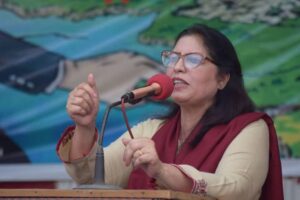
“We are ready to organize further rallies of farmers all over the country. We always peacefully and lawfully demand our rights, but when the government tries to suppress our men and women, we also activate our guerillas. We have formed the Mazareen Aurat Thaapa Force which has the ability to push back even the professional cops and soldiers,” said Riffat Maqsood who was a leading force during last week’s protests.

Ph: 03085125701
Email: [email protected]

